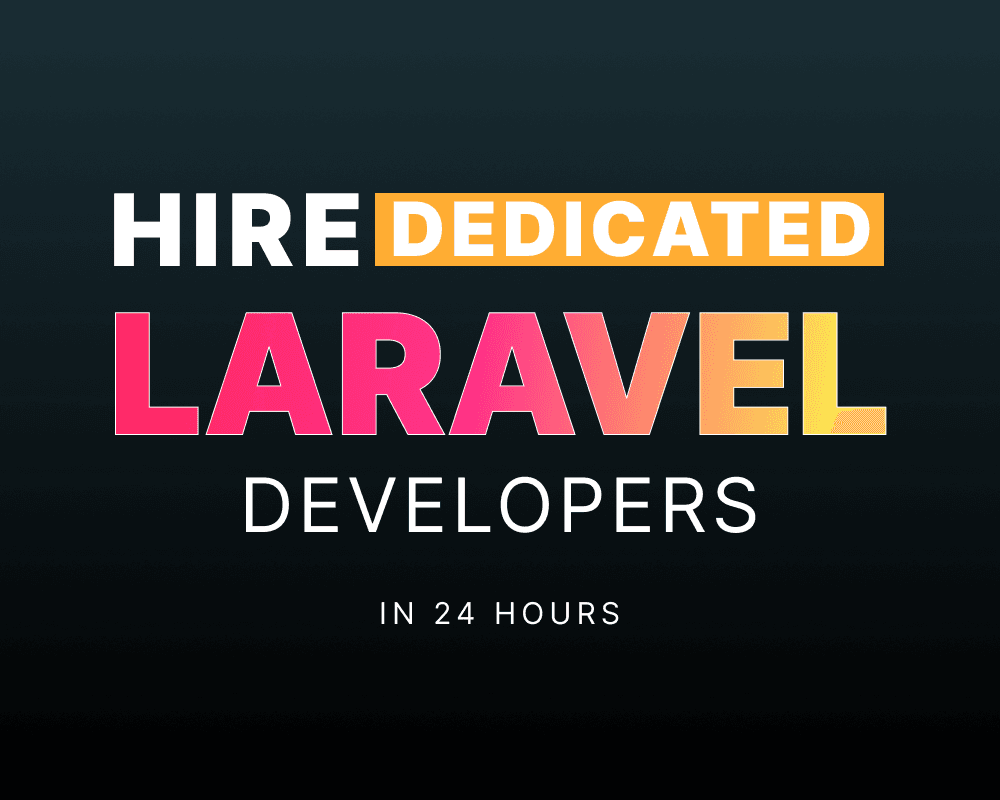JavaScript is a widely popular and renowned programming language that’s preferably used by most companies to develop applications.
Initially, it was used for front-end development, however, with the advent of time, the technology evolved and is now best suited for developing cross-platform mobile applications.
NodeJS became a popular technology that made a drastic shift in web development
in the same way as JavaScript had exploded and made its way into the web development domain.
If we observe the search list on Google Trends, it speaks a lot about developers going bonkers over this language for web development.

To the best of our knowledge, most massive companies, including LinkedIn, Netflix, eBay, PayPal, Reddit, Tumblr, and Amazon, have built their applications with NodeJS.
You can observe how seamlessly these applications function, and it implies that there’s a lot that NodeJS offers in web development!
If you want to imbibe some in-depth insights on NodeJS, its use, and why it is leading the world of app development, this blog will walk you through it!
What’s the buzz around NodeJS?
NodeJS is a JavaScript runtime engine that’s developed with the Chrome V8 JavaScript engine.
It’s primarily used for delivering highly scalable server-side applications that massively support asynchronous programming with non-blocking output/input models and are event-driven.
Its rich ecosystem, or community, makes it more popular among developers and is a significant reason why it is actively growing faster than other programming languages.
The community is quite huge and supportive, helping to enhance and fix the server-side development environment and develop some awesome frameworks that can effectively deliver the solutions.
It also facilitates eliminating the repetitive process, making the development far better and more efficient.
If you’re considering NodeJS for your next project, it’s wise to consider the below compelling reasons that will blow your mind.
Why is NodeJS the ideal choice for web development?
1. Enhanced Speed and Efficiency
NodeJS is based on the V8 engine that directly compiles JavaScript into native machine code. It enhances the speed of the application.
It also helps to develop fast, scalable, and robust applications; hence, it is perfect for web app development.
In addition, it uses a single thread rather than multiple threads for the event loop to handle the asynchronous I/O.
2. Escalates Productivity
Productivity isn’t a one-factor-based dimension as it works for both front-end and back-end development, eliminating the need for dependencies.
It also ensures seamless working while developing more efficiency.
The high efficiency and productivity are also one of the reasons why most companies gravitate towards NodeJS for app development.
For instance, PayPal incorporated NodeJS quite well and it successfully turned productive for developers while developing web applications as they developed an efficient and highly functional application by utilizing a few resources in a shorter span.
3. Based on JavaScript
Undeniably, you wouldn’t beg to differ when I say that JavaScript is one of the most basic programming languages that almost every developer might be familiar with.
With the rapid advancement in the number of programming languages, it’s hard to hunt for an efficient and experienced developer.
It’s wise to select a platform that runs on a popular and easy programming language. NodeJS is perfect to describe this example.
The silver lining of using NodeJS is that you can use it quite optimally for web development and don’t have to bother locating a dedicated NodeJS developer, or you can go with the NodeJS development company as well.

4. Addresses Database Queries
NodeJS when combined with NoSQL databases such as MongoDB and CouchDB, B, eliminates the need to modulate the syntax differences.
The ability to work on real-time applications results in the out performance of NodeJS. In addition, the JSON-stored data enables it to run without any hassle of data conversion.
5. Rich community
Although NodeJS is an open-source language, its community support is quite incredible and strong.
In fact, ever since the discovery of NodeJS in 2015, gigantic companies such as IBM and Microsoft have counted on it and have become the founding members. It implies that this cross-platform technology is efficiently tested and assured.
Its development process is quite seamless, and its runtime environment makes it the cherry on top of the cake.
6. Uses V8 JavaScript engines
As NodeJS is built on the V8 JavaScript engine, it’s got an innate ability to enhance the development speed and performance of web applications. Also, the applications end up running within the runtime environment.
7. Scalability
NodeJS can be scaled up based on the project requirements, and since it’s a part of the MEAN stack, it can be used quite well for both large and small operations and can enable horizontal and vertical scaling.
8. Request Handling
It has a non-blocking I/O system that can process several requests at the same time, where incoming requests are queued and work at a great pace. It also results in utilizing less system RAM, making it more scalable and high-performing.
9. More time-to-market
NodeJS is perfect to use for time-to-market. It highly reduces the app development time resulting in contributing more time to market. Furthermore, the cost of development is low as well and can go from the concept to the finished product in a quick snap.
10. Best for front-end and back-end development
NodeJS has become a highly popular and in-demand universal programming language that can be effectively used for both backend and frontend development.
It relatively makes client work easier at a low cost as finding a full stack developer isn’t easy and can be a hassle.
Read more about node.js vs reactjs…
Which applications are best suited for NodeJS?
Being a JavaScript runtime environment, it massively supports handling various events in a single thread and non-blocking I/O, resulting in the development of fast, efficient, and scalable applications while handling I/O-heavy workloads in web applications.
Below are the applications that NodeJS can develop:
1. Real-Time Chats
Real-time chat applications are online communication tools that enable the instant transmission of audio messages, text, and videos to the receiver from the sender.
Social media applications or commercial websites are renowned examples of it.
NodeJS comprises the essential features that are required to develop complex or large real-time chat applications as it has a powerful API that aids the creation of emitters.
The emitters emit named events, making it easier to implement and execute on the server-side events and send push notifications. It’s received by the event handlers.
These push notifications are also used in messaging and real-time chats.
2. Complex SPAs
Single-page applications are known in web development as the applications that fit on a single page to deliver a seamless user experience.
It helps to develop social networking applications, text tools, and online drawing tools. For instance, Gmail is the best example of a single-page application that has a great presentation and consistently updates incoming mail.
NodeJS is an ideal choice for developing SPAs due to its capability to handle data-heavy workloads and asynchronous calls that are a must in complex SPAs.
In addition, the event loop in it can also delay various concurrent client requests while ensuring seamless data updates and easy transitions between the views.
Also, NodeJS is written in JavaScript, which is the same language in most in-demand JavaScript frameworks that are used for the development of various SPAs.
The browsers and NodeJS use JavaScript, which reduces the context switching. It also enables developers to use the same language structure and data on both the client and server sides, resulting in faster development and easier maintenance of applications.
It also makes it popular and a go-to tool for developing applications. In fact, the leading platforms, such as Medium and LinkedIn, have used it.
3. IoT
The Internet of Things is a network of devices that transmit and exchange data, such as actuators, and sensors. It also includes millions of devices, making it a tad tedious to manage tons of requests and data streams.
NodeJS has been used by most organizations and enterprises since its launch due to its ability to handle multiple requests and events efficiently, which are emitted by millions of devices while ensuring high performance.
The asynchronous processing and event-driven architecture in NodeJS enhance its ability to handle tons of data and requests from various IoT devices without compromising on its performance.
It also makes it a layer between the databases and devices in the application that can store the data.

4. Streaming applications
Streaming applications enable part of an application to be downloaded on demand without overloading the server.
Initially, the parts of the application needed for bootstrapping are downloaded, and later the rest can be downloaded in the background. Once the entire application is downloaded, it can be used with any network connection.
NodeJS has a native stream that is excellent for developing streaming applications. It’s got a writable and readable stream interface, which can effectively be monitored and processed.
The stream instances are also like Unix pipes in which half the part of an application enables executable code. It’s then further transmitted to the machine. Once it’s done, the connections are formed for new components which can be downloaded on demand.
5. Real-Time Collaboration tools
Real-time collaboration tools involve video conferencing, audio conferencing, project management, co-browsing, collaborative document editing, application sharing, and many more. Some of the prominent examples of it are Google Docs, Trello, and Slack.
Its event-based architecture and asynchronous nature make it a perfect choice for developing real-time collaborative tools.
Most requests and events occur instantly and simultaneously with these tools. For instance, various users can edit comments, posts, or paragraphs and can even attach media while operating it from different devices.
The changes can be done on any piece of content and can be implemented after a series of events that are indirectly dependent on the last event.
NodeJS instantly updates the collaborative environment with a push notification to the client. It ensures that the users have a coherent and single representation of the application.
The company preferably uses NodeJS for its ability to instantly propagate or handle multiple updates and have a huge number of open connections due to its outstanding non-blocking and event-driven architecture.
6. Developing micro-service architecture
Most applications that were once monolithic applications have transformed into micro-services.
Some of the best examples are Facebook, Netflix, Amazon, and eBay, making the micro-service architecture highly in demand.
NodeJS can create micro-services and APIs to better connect. The NodeJS repository involves Koa and the Express framework, making it simple and easier to initiate multiple server cases and designs while routing addresses.
One of the renowned examples is PayPal, which has used NodeJS for its micro-service architecture and has successfully utilized its benefits.
Popular application built with NodeJS
Netflix
Netflix is the epitome of streaming media and on-demand media. Being a data-driven platform, it extensively uses A/B testing to cater to a rich and seamless user experience for its millions of subscribers.
However, the catch was that its app scalability and conditional dependencies degraded the vast number of packages per push cycle. This made the company switch to NodeJS, which eventually made it more efficient.

There are a few key factors to consider How to choose software development company :
- Expertise and experience: Look for a company with a proven track record of delivering high-quality software on time and within budget. Consider their areas of expertise and whether they have experience in the specific domain you are working in.
- Communication and collaboration: It’s important to choose a company that is responsive and easy to work with. Look for a company that values open and frequent communication and is willing to collaborate with you to ensure your project’s success.
- Cost and value: Consider the cost of the software development services and whether they provide good value for money. Be sure to get quotes from multiple companies to ensure you are getting a competitive price.
- Process and methodology: Look for a company that follows a well-defined software development process and has a clear methodology for delivering projects. This will help ensure that your project is completed efficiently and effectively.
- Reputation and references: Consider the company’s reputation in the industry and ask for references from previous clients. This will give you a sense of their work ethic and the quality of their software development services.
- Cultural fit: It’s important to choose a company that aligns with your values and culture. Look for a company that shares your vision and will be a good fit for your team.
Conclusion
If you’re looking to develop real-time chats, single-page applications, streaming applications, or micro service architectures, NodeJS is so far the best option to take into account.
It incorporates all the fundamental features that are ideal to make it an excellent choice to deliver flawless performance.
Besides creating APIs, it also leads to high scalability and the handling of I/O-based requests.
Hence, if you’re looking to develop a phenomenal application to encourage your developers and keep their spirits high while ensuring that it ends up delivering the best customer experience, NodeJS is the best to employ.
In addition, you can easily locate the right NodeJS development company and hire NodeJS developers conveniently, depending on your budget and project requirements. If you hire the right NodeJS developers, you will definitely end up with an impeccable application.




